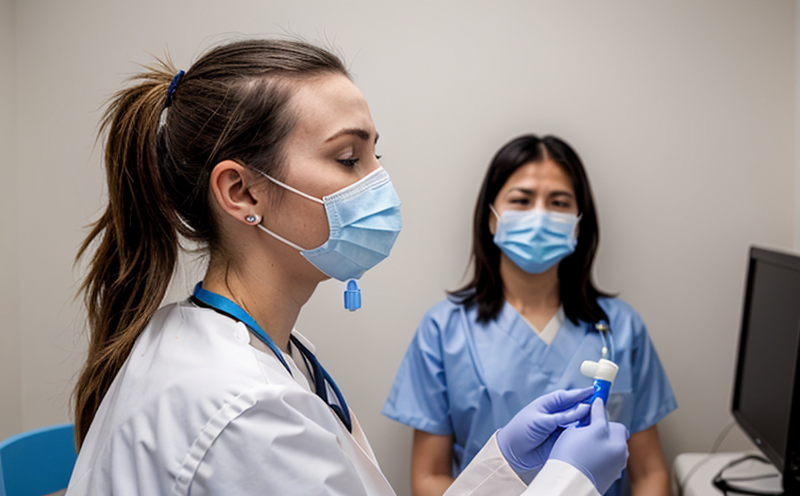Respiratory Viral Testing in Non-Human Primates for Research
The need to understand and combat respiratory diseases is critical in both human medicine and veterinary research. Non-human primates (NHPs) play a pivotal role in preclinical studies aimed at developing treatments, vaccines, and understanding the mechanisms of viral infections. Respiratory viral testing in NHPs is not only essential for evaluating the efficacy and safety of new therapeutic agents but also for studying the immune response to pathogens.
Research involving respiratory viruses such as influenza A, coronaviruses (CoV), adenovirus, and respiratory syncytial virus (RSV) in NHPs helps bridge the gap between animal models and human clinical trials. This testing is particularly important because many respiratory diseases exhibit different characteristics in non-human primates compared to other animal models or humans.
The process of conducting such tests involves several key steps, including selecting the appropriate species of NHP, preparing specimens correctly, and using advanced diagnostic tools. The choice of species (e.g., cynomolgus macaques, rhesus macaques) is crucial as they have similar respiratory systems to humans, making them ideal for studying viral infections.
Specimen collection methods vary depending on the type of respiratory pathogen under investigation. Nasal and pharyngeal swabs are commonly used for sampling upper respiratory tracts, while bronchoalveolar lavage (BAL) or lung tissue biopsies provide insights into lower respiratory tract involvement. Proper handling and storage of specimens ensure accurate results.
Diagnostic tools include real-time polymerase chain reaction (RT-PCR), next-generation sequencing (NGS), enzyme-linked immunosorbent assay (ELISA), and viral culture methods. These techniques allow for precise detection, identification, and quantification of respiratory viruses. RT-PCR is particularly useful due to its high sensitivity and specificity.
The role of NHPs in vaccine development cannot be overstated. By testing candidate vaccines in these animals, researchers can assess immunogenicity, efficacy, and potential adverse effects before moving on to human trials. This step ensures that any new vaccine undergoes rigorous evaluation to minimize risks associated with clinical use.
Furthermore, respiratory viral testing in NHPs aids in understanding the pathogenesis of diseases, helping scientists unravel how viruses interact with host cells at a molecular level. This knowledge is invaluable for designing targeted therapies and prophylactic measures against emerging pathogens.
The ethical considerations surrounding this type of research are paramount. Compliance with international guidelines such as those outlined by the Association for Assessment and Accreditation of Laboratory Animal Care International (AAALAC) ensures humane treatment of NHPs throughout the testing process.
Benefits
- Predictive Value: Provides accurate predictions about human responses to respiratory viruses, enhancing translational research.
- Enhanced Efficacy: Allows for more effective development of treatments and vaccines through comprehensive testing in relevant animal models.
- Improved Safety: Identifies potential side effects or adverse reactions before clinical trials on humans begin.
- Compliance: Ensures adherence to regulatory standards, supporting the ethical use of animals in research.
The benefits extend beyond just scientific advancement; they also contribute significantly to public health by providing safer and more effective medical solutions. By leveraging NHPs for respiratory viral testing, researchers can better prepare for future pandemics and improve overall global health outcomes.
Eurolab Advantages
At Eurolab, we are committed to delivering high-quality respiratory viral testing services tailored specifically for non-human primates. Our experienced team of scientists and technicians ensures that every aspect of the testing process adheres strictly to international standards such as ISO 17025 and ISO/IEC 17026.
Our state-of-the-art facilities are equipped with cutting-edge diagnostic technologies, including advanced PCR machines, high-throughput sequencers, and sophisticated imaging equipment. These resources enable us to conduct thorough and reliable testing that meets the highest scientific expectations.
We pride ourselves on maintaining strict quality control measures throughout our processes, from specimen collection to final report generation. This commitment guarantees that all results are accurate, reproducible, and transparently documented.
Moreover, Eurolab’s comprehensive approach includes providing detailed reports that not only list the findings but also offer valuable insights into their implications for future research projects or therapeutic developments. Our customer support team is always available to assist with any queries related to our services.





